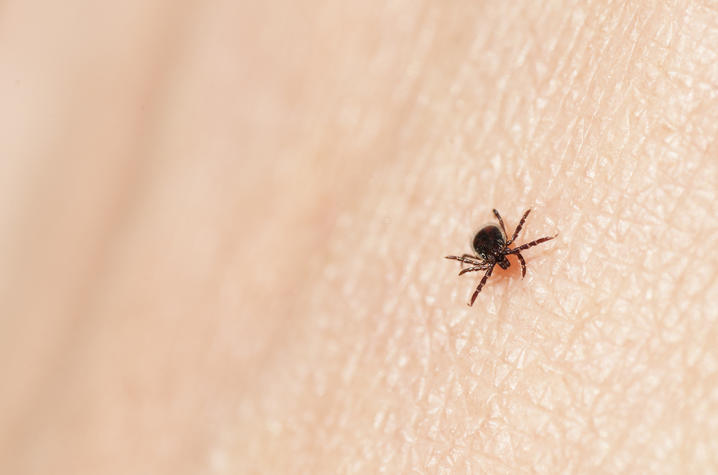UK Study to Explore Why Lyme Disease Symptoms Persist for Some

LEXINGTON, Ky. (March 4, 2022) — Although most cases of Lyme disease can be cured with a two-to-four-week course of antibiotics, some patients still experience lingering, debilitating effects of the disease months after they finish treatment.
Researchers in the University of Kentucky’s College of Medicine are seeking to understand if the antibiotic regimen used to treat Lyme disease could also be contributing to Post-Treatment Lyme Disease Syndrome (PTLDS), which includes ongoing symptoms of pain, fatigue or difficulty thinking.
Antibiotics can cause imbalances to the gut microbiome, the trillions of microbes essential to health and immune system function. Known as dysbiosis, these disruptions are linked to various autoimmune and inflammatory diseases, as well as cardiovascular disease and depression.
The study, supported by the Global Lyme Alliance and co-led by Ilhem Messaoudi, Ph.D., and Brian Stevenson, Ph.D., in the Department of Microbiology, Immunology and Molecular Genetics, will be the first to assess the role of dysbiosis in the development of PTLDS.
Lyme disease is a tick-borne illness caused by the bacteria Borrelia burgdorferi. The Centers for Disease Control and Prevention estimates that 476,000 Americans are diagnosed with Lyme disease each year.
The research will provide new insights into the interaction between B. burgdorferi infection, antibiotics, and the gut microbiome that may lead to more effective ways to treat Lyme disease, says Messaoudi.
“Lyme disease can be just an acute episode, but for some people, it becomes a prolonged disease with a lot of complications and scientists don’t fully understand where these complications come from,” Messaoudi said. “This study may provide targets that could lead to the development of new antibiotic treatment plans that address the microbiome as well as the immune system.”
Messaoudi and Stevenson will be collaborating with researchers at the Oregon National Primate Research Center to carry out an in-depth analysis of host responses. The research will also establish an ideal animal model for future studies on the cognitive and physical effects of PTLDS.
As the state’s flagship, land-grant institution, the University of Kentucky exists to advance the Commonwealth. We do that by preparing the next generation of leaders — placing students at the heart of everything we do — and transforming the lives of Kentuckians through education, research and creative work, service and health care. We pride ourselves on being a catalyst for breakthroughs and a force for healing, a place where ingenuity unfolds. It's all made possible by our people — visionaries, disruptors and pioneers — who make up 200 academic programs, a $476.5 million research and development enterprise and a world-class medical center, all on one campus.




